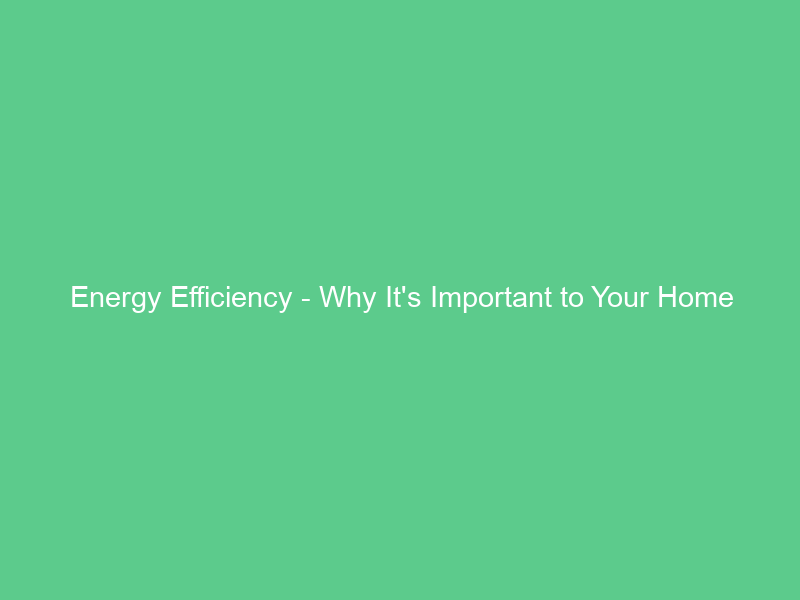Energy efficiency is a key component of combatting global climate change. By decreasing our overall energy consumption, we can lower greenhouse gas emissions while simultaneously improving air quality and conserving natural resources.
Energy burdens for many families can be immense, making it hard to decide between paying their energy bills and purchasing food. Energy efficiency investments help ease these burdens while offering both financial and health advantages for households.
Reduce Your Utility Bill
Energy efficiency can reduce your home’s energy usage and utility costs. It is an affordable way to cut energy costs without compromising comfort or safety, providing savings without incurring more expenses.
Energy-efficient purchases may cost more upfront, but their utility savings quickly make up for it in utility savings alone. Furthermore, most energy-efficient products last longer, further lowering long-term costs.
Reducing energy consumption is also good for the environment, as it reduces carbon dioxide emissions and other pollution that lead to poor air quality and health issues such as asthma, heart attacks and lung cancer.
Reduced electric loads will enable you to purchase a smaller, less costly renewable energy system. Furthermore, time-of-use rates offer cheaper rates if usage occurs outside peak hours.
Save Money
Energy-efficient appliances and home upgrades often have higher upfront costs, but often pay for themselves over time through reduced utility bills. Energy-efficient lighting uses up to 35% less electricity than traditional incandescent bulbs while lasting longer so you spend less on replacements.
Commercial and industrial businesses can realize significant financial advantages from adopting energy efficiency practices, such as investing in new electric motors or upgrading insulation. By doing so, these changes reduce dependence on imported energy while improving energy security by lessening strain on the electrical grid.
Energy efficiency is one of the best ways to eliminate energy waste, combat climate change, purify our air we breathe, lift families out of poverty, and help businesses compete globally. Programs like ENERGY STAR have already produced significant financial savings and emissions reductions while shielding communities from volatile natural gas prices and energy price spikes.
Save the Environment
Energy efficiency helps the environment by reducing air pollution, water consumption and carbon emissions. Furthermore, it reduces the need for new power generation and transmission as well as helping mitigate risks related to fossil fuel price volatility.
Energy efficiency upgrades in homes can make life healthier and more comfortable for families. Such upgrades may include upgrading appliances to be more energy-efficient, installing LED bulbs with efficient insulation properties, installing energy saving thermostats, or improving ventilation and weatherization of the property.
Reduced energy use is also good for the economy, creating jobs in research, production, sales and installation. Furthermore, utilities who offer rebates for energy-saving technologies provide customers with an incentive to use less energy overall.
Industrial companies that prioritize energy efficiency can enhance their competitiveness and increase profitability by lowering operational costs and improving productivity. By recycling materials for reuse or producing electricity from process energy generated within their own operations, energy efficient companies can reduce waste produced while at the same time alleviating stress on power grids.
Increase Your Home’s Value
Energy efficiency can go beyond simply lowering utility bills and carbon footprint, however; it also adds value to your home. Real estate professionals report that prospective buyers actively look for homes equipped with energy-saving features – and are willing to pay extra for them.
State policymakers can also help make energy efficiency financing easier through policies that mandate utilities to offer programs, provide appropriate business models, and set cost-effective energy savings targets. Such policies can help break down any barriers preventing uptake while simultaneously speeding up its impact.
Susan invested in high-quality insulation and a smart thermostat to reduce heating costs while increasing her property value at the same time. According to recent market analysis, green labeled homes sold faster and were less likely to leave the market altogether, yielding an instant return on investment. Energy efficient improvements also help address energy equity by providing cost-effective technologies directly into communities in need.

